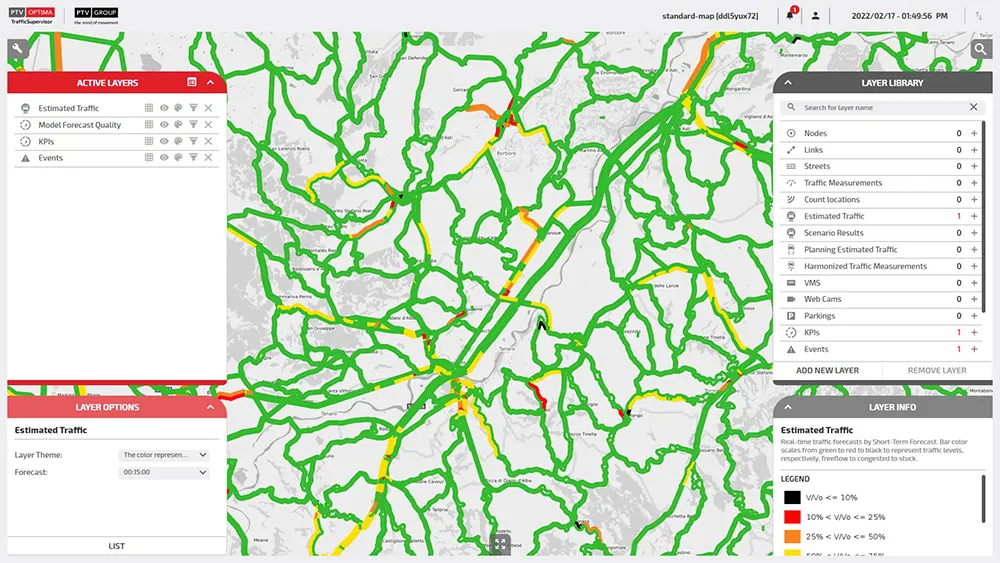As part of the RegioMove project,
RegioMove has been commissioned by Karlsruhe Verkehrsverbund (KVV) and funded by the State of Baden-Wuerttemberg and the European Fund for Regional development.
A car sharing and ride pooling simulation will include system- and service-related specifications such as maximum waiting times, detours, pick-up/drop-off concepts will be outlined based on the development of the regional transport demand and mobility services.
PTV’s mobility experts will also provide the basic technology for a comprehensive, multimodal travel information system. The model- and planning-based tasks of the Port work package will be carried out in partnership with Karlsruhe University of Applied Sciences and the Karlsruhe Institute of Technology (KIT).
The Consortium in charge of the implementation of the project includes KVV, the Regionalverband Mittlerer Oberrhein, KIT, Karlsruhe University of Applied Sciences, FZI Forschungszentrum Informatik, raumobil GmbH, PTV Group, Init GmbH, Stadtmobil CarSharing, the City of Karlsruhe and the District of Rastatt. As one of 21 flagship projects participating in the national RegioWIN competition, the RegioMOVE project won the award in 2015.
Dr. Alexander Pischon, KVV managing director, said: "The mobility services, which should be made available in the near future through RegioMove, represent a real added value for the passengers using our transport network. RegioMove will allow us to combine different mobility options comfortably from a single source.”
PTV Group develop mobility concept as part of RegioMove project
As part of the RegioMove project, PTV Group (PTV) will model Mobility-as-a-Service (MaaS) offerings, evaluate new operating strategies such as ride pooling, provide technology for the multimodal information system and plan the design of mobility stations (Ports), in Karlsruhe, Germany. The €5m (£4.3m) plan aims to lay the foundation for the development of a multimodal transport network, including technology and infrastructure. RegioMove has been commissioned by Karlsruhe Verkehrsverbund (KVV) and funded
December 15, 2017
Read time: 2 mins










